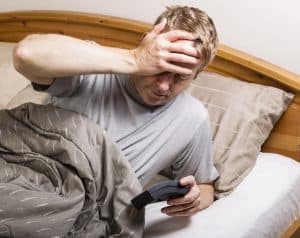 On March 12th the USA changed its clocks one hour forwards. Instead of 2 AM, it was changed to 3 AM, essentially robbing us of one hour of quality sleep. So what is daylight saving and why does it exist? More importantly, does it affect our sleep and how?
On March 12th the USA changed its clocks one hour forwards. Instead of 2 AM, it was changed to 3 AM, essentially robbing us of one hour of quality sleep. So what is daylight saving and why does it exist? More importantly, does it affect our sleep and how?
We can all agree that sleep is important for normal functioning. So anything that disrupts this sleep needs to be scrutinized and determined if the benefits outweigh the drawbacks.
When was it invented?
There were previous proposals as early as the late 18th century for some form of daylight saving. However, it was in the early 20th century in the German and Austro-Hungarian empires that this was first implemented. The practice spread to the whole of the European continent and finally to the USA.
Why was it needed?
The primary reason for this practice was reducing the use of incandescent lights, such as gas light or candles in the evening, by using the fact that the sun rises earlier in the summer.
Does everybody do it?
Actually, the majority of the world does not have this tradition. The practice is pretty limited to Europe and some of their former colonies, such as the USA, Canada, South Africa and parts of Australia. The USA overseas territories such as Guam, Marianas, American Samoa and Puerto Rico do not use it at all, and neither do the states of Hawaii and Arizona.
Does everybody do it the same way?
In other countries, daylight saving does exist, but the European Union, for example, has a different schedule, with the summer time this year officially starting on March 26th. Other countries have their own schedules as well.
Does it affect sleep?
There is a general consensus that there is an impact of this shift in time on our sleep patterns, which can negatively affect our general health. Americans sleep less than recommended even as it is, so this one lost hour can have a noticeable effect on our health.
Inner clocks
You may move your phone or computer clock an hour ahead and say it’s the correct time, but our inner clocks are a bit more difficult to fool. That’s why the majority of symptoms associated with daylight saving shift are felt early in the week. Our inner clocks need more time to adjust, so feeling drowsy and sleepy at work or in general during the first few days can be expected.
More heart attacks
Mondays are hard, sure, but when combined with the recent change of time, and the lack of sleep which comes as a result, the result can be shocking. Studies have shown that there is a sharp 25% increase in heart attacks on the Monday following the time shift compared to any other Monday of the year.
Oddly enough, the same study, named “Daylight Savings Time and Myocardial Infarction” found that when daylight saving ends in the fall, that Monday experiences a 21% drop in heart attacks. It really does appear that that one extra hour means a lot.
Strokes
There is also a spike in the cases of strokes in the days immediately following the time shift, though not as sharp as with heart attacks. The rationale seems to be the same. Sleep disturbance which comes from the disrupted internal clock affects the overall health, including circulation. This can ultimately lead to a stroke.
Find A Perfect Mattress in San Diego
This tradition seems to have some adverse effects on sleep and health. It’s a good idea, then, to start preparing your body for this change a bit in advance so that the shock is not so sudden. Another thing you can do is get a quality mattress to ensure the best sleep quality. If you are buying a mattress in San Diego, visit Mattress Makers in our showroom in San Diego, or contact us to learn more about our offers.